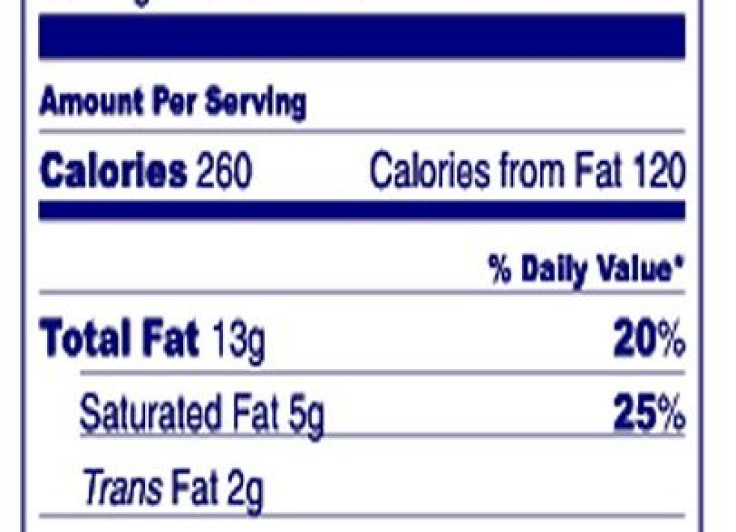Trans Fats: All You Need To Know, After FDA Says They Are No Longer ‘Safe’

We've known for years that partially hydrogenated oils, a major source of trans fats, are bad for us, but now the Food and Drug Administration no longer recognizes them as safe, the agency said Thursday, taking a step toward potentially eliminating them from the food supply.
Here are a few useful things to know about trans fats.
1. They Show Up Mostly In Microwave Popcorn, Biscuits And Desserts
FDA consumer safety officer Mical Honigfort says that trans fats can be found in many processed foods, such as cookies, cakes, frozen pies and other baked goods, as well as microwave popcorn, frozen pizza and instant use frosting.
Researcher Euromonitor International estimates that about half of the hydrogenated vegetable oils in packaged foods aimed at U.S. consumers comes from popcorn. One-quarter comes from dessert mixes, and about 8 percent from packaged cakes, according to the Wall Street Journal.
Some restaurants also use trans fats to fry foods, though trans fats have been banned in New York City restaurants since 2006, under Mayor Michael Bloomberg. Food companies have been required to include trans fats on nutrition labels since 2006, under FDA rules.
2. Many Trans Fats Have Already Been Phased Out By Food Companies
A 2002 Institute of Medicine report found that intake of trans fats leads to higher levels of “bad” cholesterol, which can contribute to heart attacks.
After the FDA began discussing the regulation and labeling of trans fats in 2003, consumer awareness grew. Many food companies and companies voluntarily withdrew or slimmed down trans fats in their foods.
McDonald’s Corporation (NYSE:MCD) cut back on trans fats in 2002 in its French fries, and tested new oils, reports the Wall Street Journal. KFC pledged to eliminate most trans fats in its foods by April 2007, according to earlier Euromonitor International research.
Kraft Foods Group Inc. (NASDAQ:KRFT) removed trans fats from Oreos in 2006, and Walt Disney theme parks no longer serve foods with trans fats. The J.M. Smucker Company (NYSE:SJM), which sells Pillsbury baking mixes, told the Journal it has already started switching to other ingredients in its cake mixes and frostings, though trans fats still remain in some.
“We are confident all of our product reformulations will be complete well before the FDA implements any new rules,” a spokeswoman told the Journal.
3. The Decision Could Make A Significant Public Health Impact, And Likely Won’t Affect Flavors
The Centers for Disease Control and Prevention estimates that a reduction of trans fat in the food supply can prevent 7,000 heart attack deaths and up to 20,000 heart attacks annually.
Trans fats don’t have a distinctive taste, and other fats can easily be substituted into foods, so consumers are unlikely to be aware of any switch from a flavor perspective, according to AP.
The FDA’s step toward eradicating trans fats completely is “one of the most important life-saving measures the FDA could take,” according to the Center for Science in the Public Interest. Earlier in the 2000s, the center helped sue many restaurants, including Burger King Worldwide Inc. (NYSE:BKW), seeking less use of trans fats.
© Copyright IBTimes 2024. All rights reserved.












